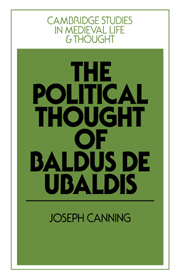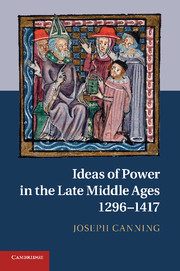Conciliarism, Humanism and Law
How was power justified in late medieval Europe? What justifications did people find convincing, and why? Based around the two key intellectual movements of the fifteenth century, conciliarism in the church and humanism, this study explores the justifications for the distribution of power and authority in fifteenth- and early sixteenth-century Europe. By examining the arguments that convinced people in this period, Joseph Canning demonstrates that it was almost universally assumed that power had to be justified but that there were fundamentally different kinds of justification employed. Against the background of juristic thought, Canning presents a new interpretative approach to the justifications of power through the lenses of conciliarism, humanism and law, throwing fresh light on our understanding of both conciliarists' ideas and the contribution of Italian Renaissance humanists.�
- Offers a fresh interpretation of conciliar and humanist political thought
- Deconstructs assumptions about authority and examines how power can be justified
- Fills a genuine gap in the history of political thought by focusing on the 15th century, a period often overlooked in favour of the canonical works of the 14th and 16th centuries
Reviews & endorsements
'This book does something new: no-one has looked at the justifications of power through the lenses of conciliarism, humanism and law in this way before. Canning refreshes the study both of conciliarists' ideas and of the political thought of Italian Renaissance humanists.' David D'Avray, University College London
'This comprehensive survey demonstrates the wide range of political ideas current on the eve of the Reformation. As such, it is crucial for understanding theories of power during the transition from medieval to modern Europe.' Antony Black, University of Dundee
'The particular merit of the present study is that it places three formative forms of late medieval political culture on an equal footing and follows their characteristics and developmental tendencies.' Thomas Wolki, Sehepunkte
Product details
No date availablePaperback
9781108927192
215 pages
228 × 152 × 11 mm
0.32kg
Table of Contents
- Introduction
- 1. Conciliarism and Changes of Mind
- 2. Conciliarism and Papalism
- 3. Italian Humanism
- 4. The Law
- Conclusion.


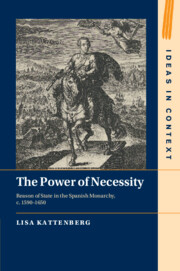

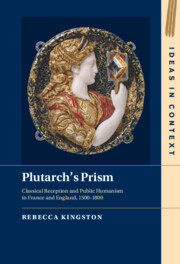
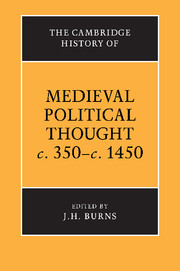




.jpg)
